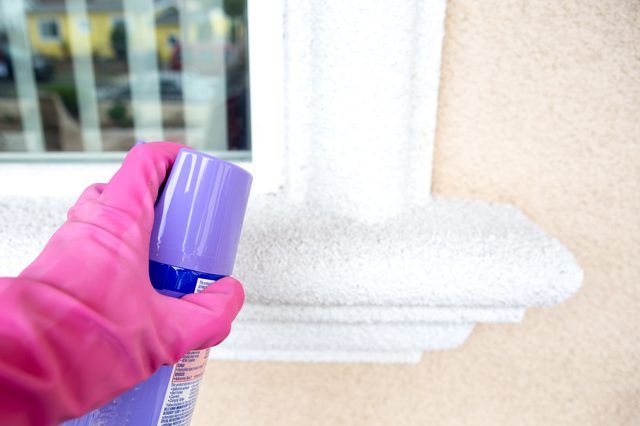Bulbs
Flower Basics
Flower Beds & Specialty Gardens
Flower Garden
Garden Furniture
Garden Gnomes
Garden Seeds
Garden Sheds
Garden Statues
Garden Tools & Supplies
Gardening Basics
Green & Organic
Groundcovers & Vines
Growing Annuals
Growing Basil
Growing Beans
Growing Berries
Growing Blueberries
Growing Cactus
Growing Corn
Growing Cotton
Growing Edibles
Growing Flowers
Growing Garlic
Growing Grapes
Growing Grass
Growing Herbs
Growing Jasmine
Growing Mint
Growing Mushrooms
Orchids
Growing Peanuts
Growing Perennials
Growing Plants
Growing Rosemary
Growing Roses
Growing Strawberries
Growing Sunflowers
Growing Thyme
Growing Tomatoes
Growing Tulips
Growing Vegetables
Herb Basics
Herb Garden
Indoor Growing
Landscaping Basics
Landscaping Patios
Landscaping Plants
Landscaping Shrubs
Landscaping Trees
Landscaping Walks & Pathways
Lawn Basics
Lawn Maintenance
Lawn Mowers
Lawn Ornaments
Lawn Planting
Lawn Tools
Outdoor Growing
Overall Landscape Planning
Pests, Weeds & Problems
Plant Basics
Rock Garden
Rose Garden
Shrubs
Soil
Specialty Gardens
Trees
Vegetable Garden
Yard Maintenance
How to kill Cockroaches
How to kill Cockroaches. An infestation of cockroaches in your yard is unpleasant, and there's a danger they will enter your home and spread diseases. American, Turkestan oriental and smokybrown cockroaches can infest yards and outdoor buildings in the United States and occasionally invade houses. A combination of methods helps provide control.
An infestation of cockroaches in your yard is unpleasant, and there's a danger they will enter your home and spread diseases. American, Turkestan oriental and smokybrown cockroaches can infest yards and outdoor buildings in the United States and occasionally invade houses. A combination of methods helps provide control.
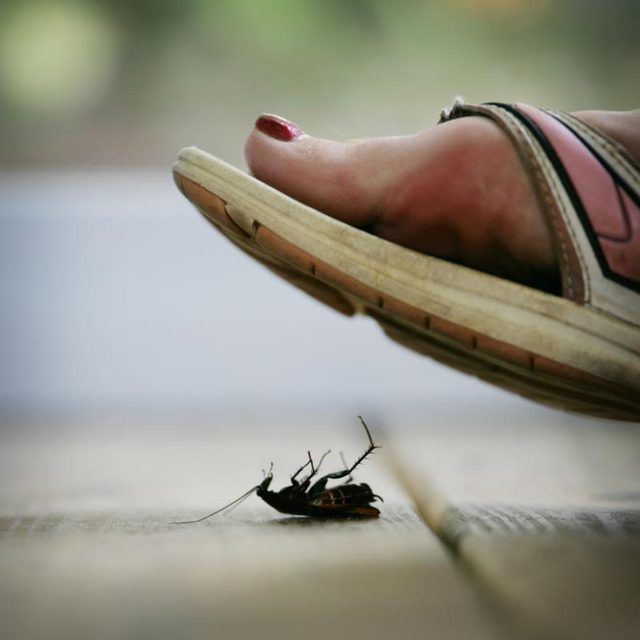
Removing food sources, plant debris and other organic matter, and pruning overgrown bushes helps discourage cockroaches from infesting yards. These pests hide and breed in dark, damp places and can live up to 42 days without food, providing they have water.
Seal your trash in plastic bags before putting it outside. Don't leave pet food or water bowls outside overnight, and keep kennel areas clean. Remove plant debris from your garden, and raise lumber piles above the ground. Rake up organic mulches, and prune stems that grow close to the ground. Wipe pruning shear blades with rubbing alcohol before and after pruning stems to avoid spreading pests and diseases. You can replace organic mulches with a 1- to 2-inch layer of gravel on established garden beds.
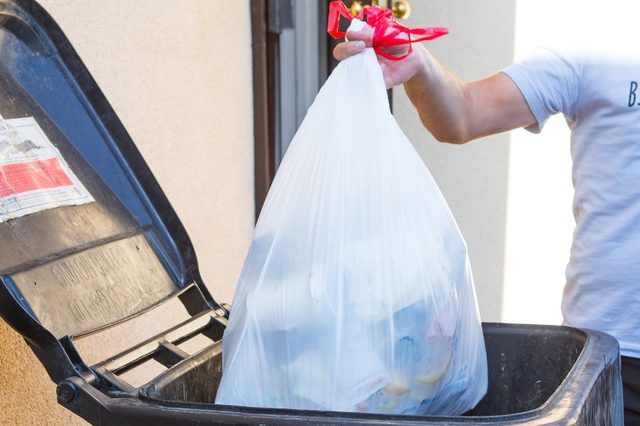
Bait stations contain granules or gels that attract cockroaches but are also poisonous to them. Use large, outdoor, refillable cockroach bait stations to control cockroaches in yards. The stations can be left in place for several months. Though most stations are child resistant, it's safest not to use them where children or pets have access.
Place bait stations where cockroaches live and feed, such as around planters, large rocks, railroad ties, and in valve and water meter boxes. Check the traps every month and refill them when the bait is used up.
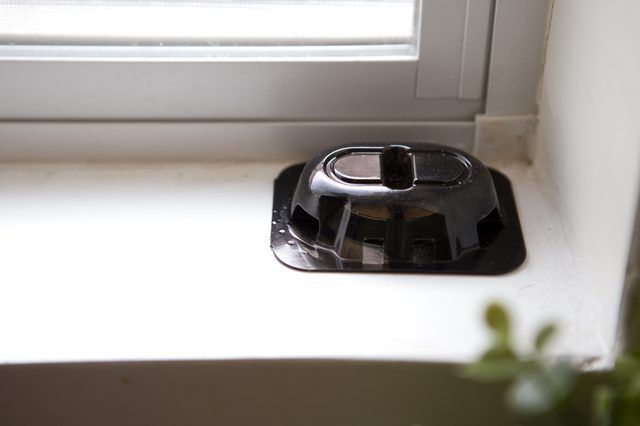
Bait gels in cracks and crevices in yards control cockroaches effectively but need frequent topping up. Bait gels dry up in about three days and stop attracting cockroaches.
Squeeze a bait gel containing 2 percent hydramethylnon in cracks in foundations, porch corners, garage doors, crawl space gratings, walls and fences. Hydramethylnon is very toxic to fish and aquatic creatures, so don't use this chemical near natural water sources. Reapply the gel every three days.
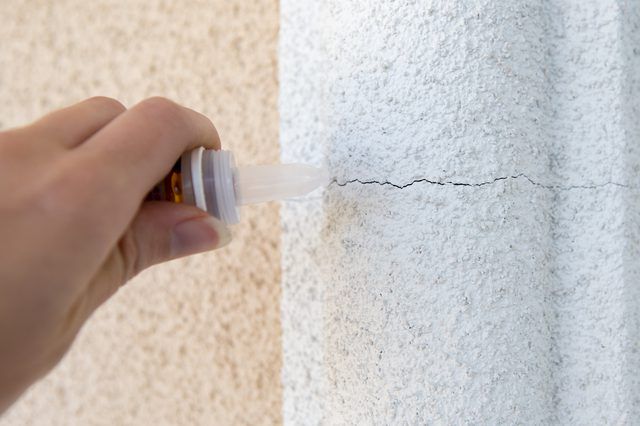
Insecticidal sprays have a fast knockdown effect on cockroaches but don't provide effective control over the long term. Broad-spectrum insecticidal sprays can also harm beneficial insects.
Put on a long-sleeved shirt, long pants, safety goggles and gloves to mix and apply insecticidal sprays. Apply a ready-to-use 0.05 percent bifenthrin and 0.0125 percent zeta-cypermethrin product along a 12-inch band around the perimeter of your home on a dry, still day. You can also spray outdoor cracks and crevices, but avoid electrical lines or outlets as well as water supplies or sources. Don't spray insecticides near bait stations or bait gels. Insecticides repel cockroaches away from baits. If the cockroach infestation is severe, call a professional for advice.
